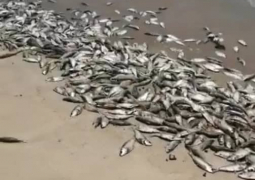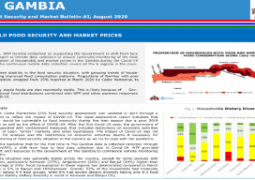The training was meant to enhance the capacities of extension workers on decision-making by teaching them ways to better manage weather and climate risks for sustainable agricultural production.
The round-table gathering seeks to enhance the capacities of extension workers on weather and climate information management and dissemination, examining the ways it affects livelihood activities.
As changing weather systems impact farmlands and communities, extension workers were taken through mechanisms to use weather and climate information to enhance on-field activities, particularly effective planting period, application of fertiliser, pesticides, herbicides, river transportation and other domestic activities.
Ousman Bojang, Governor for West Coast Region said the Department of Water Resources produces daily/seasonal weather and marine forecasts in fulfilment of statutory responsibility to advise the Government and people of The Gambia on all aspect of weather and climate.
Dr. Peter Gibba, Chief Meteorologist said in view of increasing climate related hazards driven by global warming and climate change, the Department of Water Resources continues to place significant emphasis on the observation, monitoring and prediction of the country’s weather, climate and water resources.
Lamin Saine, AACC Project Coordinator said FAO would continue to support the customisation of weather and climate information services for the agriculture sector and to improve weather and climate change forecast information dissemination at national and regional levels.
Weather and climate information systems are now pertinent tools to improve agricultural productivity for farmers. The delivery of timely information of extreme weather events, rainfall quantity, rainfall onset and cessation in lead-time provides early warning messages for decision-makers, stakeholders and end-users.




